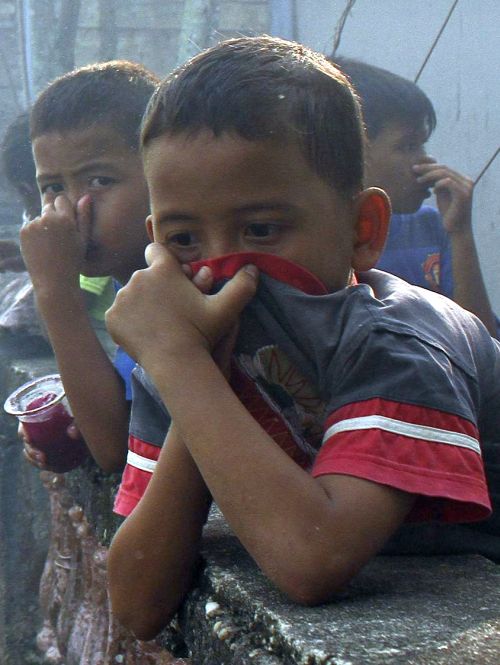
Industrialisation has been accompanied by rising greenhouse gas emissions (particularly carbon dioxide) up to income levels of $10–15,000 per capita
India and China suffer over $1.89 trillion annually in terms of the value of lives lost and ill health caused from air pollution, according to a report.
Quoting OECD estimates, a new study published in The Lancet says, "The cost of ambient air pollution in terms of the value of lives lost and ill health in OECD countries, plus India and China, to be more than $3·5 trillion annually (about 5 per cent gross world product, with India and
"China combined accounting for 54 per cent of this total. $1.89 trillion is the 54 per cent of $3·5 trillion."
The Organisation for Economic Co-operation and Development is an international economic organisation of 34 nations.
In its report released last week, the 2015 Lancet Commission on Health and Climate Change says the implications of climate change for a global population of nine billion people threatens to undermine the last half century of gains in development and global health.
Describing the Lancet study as ‘a very important document that summarises the impact of climate change on our health and wellbeing’, renowned climate expert Chandra Bhushan said, "It is quite clear from the report that India is and will be one of the worst affected regions of the world due to climate change."
"Climate change will wipe out all the gains the country has made in the last 3-4 decades in poverty alleviation and the heath sector," warns Bhushan, who is also Deputy Director General of Delhi-based advocacy group Centre for Science and Environment.
The report says there is a clear and compelling need for the industrialised world to achieve faster and much deeper emission reductions than anything delivered to date.
It also speaks about the need to provide international assistance to countries like India, which struggle to uplift millions of poor from extreme poverty.
Noting that industrialisation historically has been accompanied by rising greenhouse gas emissions (particularly carbon dioxide) up to income levels of $10–15000 per capita, the report says, "Some of the major emerging economies are already reaching such levels, with concomitant emissions; helping others to avoid doing so, or helping those (like India) still with huge challenges to lift hundreds of millions of people out of extreme poverty, will require international assistance."
Bhushan, a key negotiator in global climate summits, said the world must come together quickly and cooperate.
"Developed countries which have the financial and technical resources must take the lead help developing countries adapt as well mitigate climate change.
"Developing countries should reorient their development trajectory towards low-carbon growth," he told PTI in Kochi.
The image is used for representational purpose only; Photograph: Reuters









